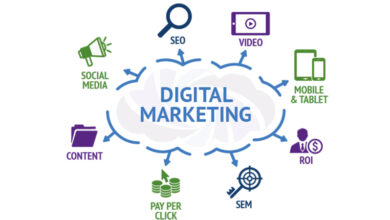
Private vs Public Cloud: What’s the Difference and Which Should You Choose?
In the United States, spending on cloud services across all industries rose by 37% in quarter 1 of 2020 alone.
As businesses continue to modernize and harness the power of the cloud, they will continue to outdistance those who don’t. Knowing what the cloud can do for you is part of the struggle, but understanding the difference between private vs public cloud is important too. Which one is right for your business?
Let’s take a look at what these two types of clouds are, so we can analyze the difference.
Table of Contents
Public Cloud
To start with, let’s talk about a public cloud. To understand the difference between the two, we will answer the most important question. What is a public cloud?
When using a public cloud, the on-demand computing and infrastructure belong to a third party. This provider often offers cloud computing to multiple organizations and in order to connect they use the public internet. This eliminates the need to host services on a company’s own data server.
The data servers then become partitioned into virtual machines and then shared by the users of that public cloud. The most dominant cloud providers are massive corporations such as Amazon and Microsoft. They control vast clouds, offering tremendous computing power and storage options to their users.
Public clouds offer services like infrastructure and SaaS for a fee that is pay-by-use, or at a flat rate. This is useful to those who may be dealing with unpredictable spikes in usage because the additional infrastructure is already in place. Large corporations sometimes use public cloud services for low-risk, high-demand tasks.
Private Cloud
In order to gain a full understanding of the topic, let’s take a look at private clouds. Here we also must ask, what is a private cloud?
A private cloud is any set of data centers, servers, or networks that work together and belong to a single entity. The activity on this cloud belongs to the same company or corporation that owns the cloud or is used only by a single entity. You may hear them called private clouds, corporate clouds, or internal clouds.
A private cloud is when the hardware and software of the cloud are accessible only by a single party. This is useful to companies because it offers many of the same advantages of a public cloud, but is more controlled. The company that owns or pays for the private cloud can control access.
Cloud Computing
The most common types of cloud computing revolve around offering on-demand services as products. This is where you find terms like infrastructure as a service, or software as a service. The infrastructure and software are contained on the cloud and are accessible via a private server or for a fee, the public internet.
These services help businesses of all sizes to be more nimble and agile in their decision-making processes. In a public cloud, cloud computing takes bits and pieces of information from a wide variety of servers and puts it together in real-time. On a private cloud, this happens via proprietary data centers.
Primary Benefits of a Public Cloud
There are a lot of benefits of using a public cloud, but the cost is one of the largest. To operate on a public cloud-only takes a fee, so there isn’t a lot of investment. A company pays the same for access as anyone else and can use all of the benefits offered by the cloud provider.
Maintenance is the responsibility of the third-party provider, so you won’t have to worry about having to budget for taking care of the cloud. Since so much is taken, using a public cloud is not just cheaper upfront, but continues to be cheaper as time passes.
Scalability is another major advantage of public clouds. If you are anticipating having spikes in computing demand, then having the extra resources of a public cloud might be for you. The public clouds offered by major corporations are vast and have near-limitless resources at their disposal.
Primary Benefits of a Private Cloud
Private clouds offer a lot of benefits, even if they do have a higher bar of reaching them. You can get the best cloud computing services and resource utilization out of your own cloud. That is because the cloud is built for use by the company that owns or controls it.
Another major benefit is regulatory compliance. Having a private cloud is an easy way to boost compliance with any regulations in your industry. This is also true of security and control, as the owning company has direct control over access to the private cloud.
Customization is also an aspect of a private cloud that attracts many businesses. The cloud can be designed from the ground up to serve the direct needs of the business that owns it. This makes it easy to change, adapt and ensure business continuity which is a key advantage in considering a private vs public cloud.
IT Services
One aspect of operations with a cloud is IT services. If you are going to use a private cloud you will need professionals that know how to set it up and maintain it. Services such as Orbissolutionsinc.com can take care of the setup and maintenance of a private cloud as well as other IT issues.
Private vs Public Cloud
It may seem like a zero-sum game, but many corporations use both private and public cloud services. This is often done as a business grows, or if a business has a need for a strict privacy or security arrangement.
When considering private vs public cloud use for your business, consider what you’re doing and what you’re going to need. Nothing can match the customization of a private cloud, but the ease of use with a public cloud is superior.
If this article has been helpful or informative, please take a moment and check out our website for more information. You’ll find the latest news, not to mention tips and tricks on various subjects, on our site!








